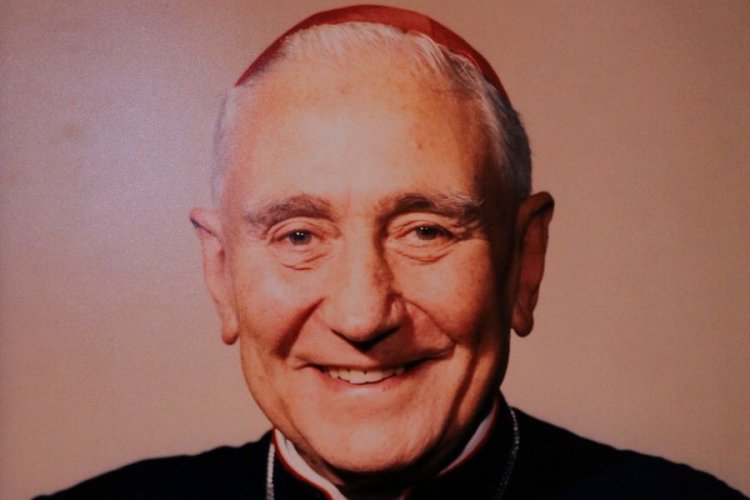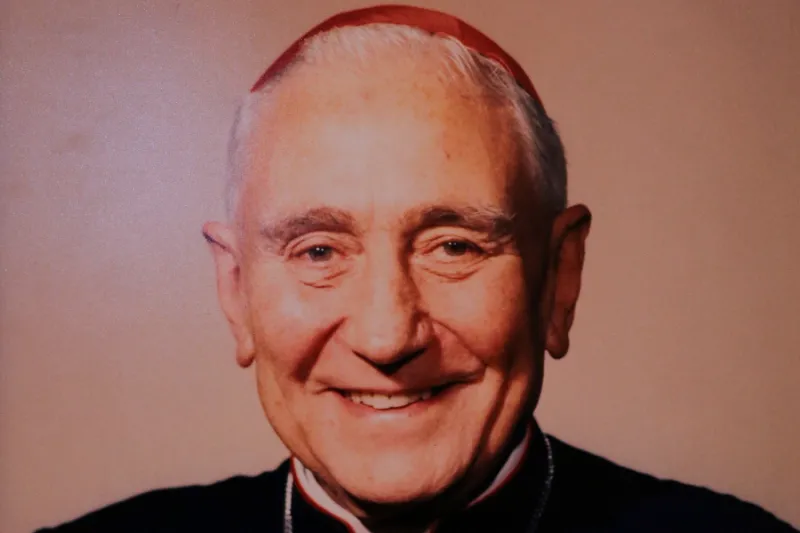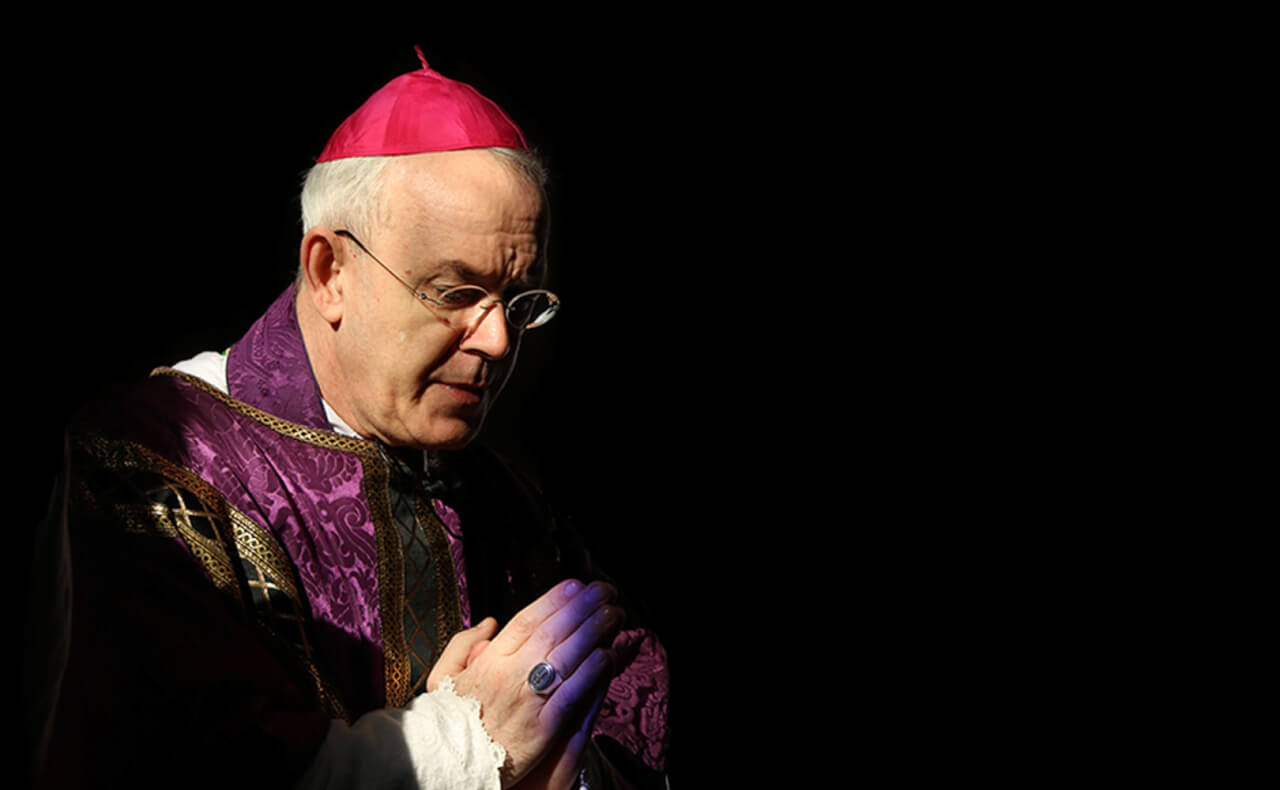Pope Francis advances sainthood cause of Argentine cardinal who organized 1st World Youth Days
Cardinal Eduardo Francisco Pironio (1920-1998). / Daniel Ibáñez/CNA. Vatican City, Feb 18, 2022 / 06:30 am (CNA). Pope Francis has advanced the sainthood cause of an Argentine cardinal who helped to organize the first World Youth Day celebrations.The pope confirmed a decree on Feb. 18 declaring that Cardinal Eduardo Francisco Pironio (1920-1998) lived a life of heroic virtue.Pironio was a member of the Roman Curia for two decades. He was brought to Rome in 1975 by Pope Paul VI and participated in the conclaves that elected John Paul I and John Paul II in 1978.Pope Francis, who was known as Jorge Mario Bergoglio before he became pope, has said that Pironio was his friend when they both lived in Argentina. The future pope even heard Pironio’s confession at one point.“I’ve known Pironio well since he was auxiliary bishop of La Plata,” he said in a 2008 interview.“Whenever you talked to him … he opened a panorama of holiness to you from his profound humility,” he said.Eduardo Francisco Pironio was born in the town of Nueve de Julio, northeastern Argentina, on Dec. 3, 1920. He was the youngest of 22 children in a family of Italian immigrants.“In the history of my family there is something miraculous,” Pironio once said, according to Pope John Paul II, who recounted the story in his homily at Pironio’s funeral.“When she gave birth to her first son,” Pironio recalled, “my mother was barely 18 years old and fell seriously ill. After her recovery, the doctors told her that she would not be able to have any more children without risking her own life. So she went to consult the auxiliary bishop of La Plata, who told her: ‘Doctors can be mistaken: put yourself in God’s hands and do your duty as a wife.’ My mother then gave birth to 21 more.”At the age of 18, Pironio entered seminary in La Plata, the capital city of Buenos Aires Province. He studied theology in Europe and was rector of the seminary of Buenos Aires and later dean of theology at the Catholic University of Argentina. He attended the Second Vatican Council as a peritus (theological expert).Pironio was made an auxiliary bishop of La Plata at the age of 44. He later recalled that this post was the same one held by the bishop who had blessed his mother.“On the day of my episcopal ordination, the archbishop gave me that bishop’s pectoral cross without knowing the story behind it. When I told him that I owed my life to the owner of the cross, he wept,” he said.Pironio went on to serve as the bishop of the dioceses of Avellaneda and Mar del Plata. He was also the president of the Latin American Episcopal Council (CELAM) from 1972 to 1975 and was known for his defense of human rights.During the last phase of the government of Isabel Perón and the military dictatorship that followed, he received death threats and was transferred to Rome. Pope Paul VI named Pironio a cardinal in 1976.Pope John Paul II called on Pironio to serve as the president of the Pontifical Council for the Laity in 1984, a post he held until 1996. In this role, he helped to launch the first World Youth Day in Rome, as well as the following World Youth Days in Buenos Aires, Santiago de Compostela, Poland, Denver, and the Philippines.Pironio also served as prefect of the Congregation for Institutes of Consecrated Life and of Societies of Apostolic Life.He died from bone cancer in Rome on Feb. 5, 1998, and is buried at the shrine of Our Lady of Luján in Argentina. His cause for beatification was opened on June 23, 2006.“I thank the Lord for the privilege of the Cross. I am very happy to have suffered so much,” Pironio wrote as he battled cancer. “I am only sorry for not having endured it better and for not always having relished my cross in silence. Now at least I would like my cross to begin to shine and bear fruit.” In his funeral homily, John Paul II expressed gratitude for Pironio’s contribution to the creation of the World Youth Day celebrations.“He witnessed to his faith with joy: the joy of being a priest and the constant desire to communicate it to the young people of today,” John Paul II said.On Friday, Pope Francis also approved a miracle attributed to Venerable Maria Costanza Panas, an Italian Poor Clare nun who died in 1963. The step paves the way for her beatification.Costanza was bedridden for the last three years of her life and offered her suffering in particular for Pope John XXIII and the success of the Second Vatican Council.The pope also recognized the heroic virtue of two other religious sisters and a Carmelite brother from Italy.The sainthood causes of the Brazilian Sister Benigna Victima de Jesus (1907-1981) and Spanish Sister Giovanna Méndez Romero (1937-1990) advanced with the declaration.The Carmelite Brother Immacolato Giuseppe di Gesù (1922-1989) lived a life of heroic virtue while bedridden with severe pain for decades without giving in to despair or self-pity.“I bless the Lord, because not even those who are close to me realize the depth of my pain,” he wrote

 Cardinal Eduardo Francisco Pironio (1920-1998). / Daniel Ibáñez/CNA.
Cardinal Eduardo Francisco Pironio (1920-1998). / Daniel Ibáñez/CNA.
Vatican City, Feb 18, 2022 / 06:30 am (CNA).
Pope Francis has advanced the sainthood cause of an Argentine cardinal who helped to organize the first World Youth Day celebrations.
The pope confirmed a decree on Feb. 18 declaring that Cardinal Eduardo Francisco Pironio (1920-1998) lived a life of heroic virtue.
Pironio was a member of the Roman Curia for two decades. He was brought to Rome in 1975 by Pope Paul VI and participated in the conclaves that elected John Paul I and John Paul II in 1978.
Pope Francis, who was known as Jorge Mario Bergoglio before he became pope, has said that Pironio was his friend when they both lived in Argentina. The future pope even heard Pironio’s confession at one point.
“I’ve known Pironio well since he was auxiliary bishop of La Plata,” he said in a 2008 interview.
“Whenever you talked to him … he opened a panorama of holiness to you from his profound humility,” he said.
Eduardo Francisco Pironio was born in the town of Nueve de Julio, northeastern Argentina, on Dec. 3, 1920. He was the youngest of 22 children in a family of Italian immigrants.
“In the history of my family there is something miraculous,” Pironio once said, according to Pope John Paul II, who recounted the story in his homily at Pironio’s funeral.
“When she gave birth to her first son,” Pironio recalled, “my mother was barely 18 years old and fell seriously ill. After her recovery, the doctors told her that she would not be able to have any more children without risking her own life. So she went to consult the auxiliary bishop of La Plata, who told her: ‘Doctors can be mistaken: put yourself in God’s hands and do your duty as a wife.’ My mother then gave birth to 21 more.”
At the age of 18, Pironio entered seminary in La Plata, the capital city of Buenos Aires Province. He studied theology in Europe and was rector of the seminary of Buenos Aires and later dean of theology at the Catholic University of Argentina. He attended the Second Vatican Council as a peritus (theological expert).
Pironio was made an auxiliary bishop of La Plata at the age of 44. He later recalled that this post was the same one held by the bishop who had blessed his mother.
“On the day of my episcopal ordination, the archbishop gave me that bishop’s pectoral cross without knowing the story behind it. When I told him that I owed my life to the owner of the cross, he wept,” he said.
Pironio went on to serve as the bishop of the dioceses of Avellaneda and Mar del Plata. He was also the president of the Latin American Episcopal Council (CELAM) from 1972 to 1975 and was known for his defense of human rights.
During the last phase of the government of Isabel Perón and the military dictatorship that followed, he received death threats and was transferred to Rome. Pope Paul VI named Pironio a cardinal in 1976.
Pope John Paul II called on Pironio to serve as the president of the Pontifical Council for the Laity in 1984, a post he held until 1996.
In this role, he helped to launch the first World Youth Day in Rome, as well as the following World Youth Days in Buenos Aires, Santiago de Compostela, Poland, Denver, and the Philippines.
Pironio also served as prefect of the Congregation for Institutes of Consecrated Life and of Societies of Apostolic Life.
He died from bone cancer in Rome on Feb. 5, 1998, and is buried at the shrine of Our Lady of Luján in Argentina. His cause for beatification was opened on June 23, 2006.
“I thank the Lord for the privilege of the Cross. I am very happy to have suffered so much,” Pironio wrote as he battled cancer. “I am only sorry for not having endured it better and for not always having relished my cross in silence. Now at least I would like my cross to begin to shine and bear fruit.”
In his funeral homily, John Paul II expressed gratitude for Pironio’s contribution to the creation of the World Youth Day celebrations.
“He witnessed to his faith with joy: the joy of being a priest and the constant desire to communicate it to the young people of today,” John Paul II said.
On Friday, Pope Francis also approved a miracle attributed to Venerable Maria Costanza Panas, an Italian Poor Clare nun who died in 1963. The step paves the way for her beatification.
Costanza was bedridden for the last three years of her life and offered her suffering in particular for Pope John XXIII and the success of the Second Vatican Council.
The pope also recognized the heroic virtue of two other religious sisters and a Carmelite brother from Italy.
The sainthood causes of the Brazilian Sister Benigna Victima de Jesus (1907-1981) and Spanish Sister Giovanna Méndez Romero (1937-1990) advanced with the declaration.
The Carmelite Brother Immacolato Giuseppe di Gesù (1922-1989) lived a life of heroic virtue while bedridden with severe pain for decades without giving in to despair or self-pity.
“I bless the Lord, because not even those who are close to me realize the depth of my pain,” he wrote in a letter to a priest in 1955, according to a website dedicated to his cause.














